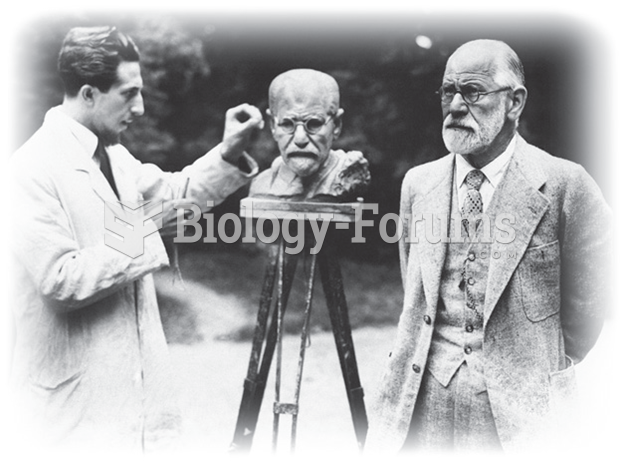|
|
|
The Romans did not use numerals to indicate fractions but instead used words to indicate parts of a whole.
Thyroid conditions may make getting pregnant impossible.
Cytomegalovirus affects nearly the same amount of newborns every year as Down syndrome.
Approximately 500,000 babies are born each year in the United States to teenage mothers.
Every flu season is different, and even healthy people can get extremely sick from the flu, as well as spread it to others. The flu season can begin as early as October and last as late as May. Every person over six months of age should get an annual flu vaccine. The vaccine cannot cause you to get influenza, but in some seasons, may not be completely able to prevent you from acquiring influenza due to changes in causative viruses. The viruses in the flu shot are killed—there is no way they can give you the flu. Minor side effects include soreness, redness, or swelling where the shot was given. It is possible to develop a slight fever, and body aches, but these are simply signs that the body is responding to the vaccine and making itself ready to fight off the influenza virus should you come in contact with it.
 In 1885 masked Nebraskans seeking access to water posed for photographer S. D. Butcher, who captione
In 1885 masked Nebraskans seeking access to water posed for photographer S. D. Butcher, who captione
 Shown here is Sigmund Freud in 1931 as he poses for a sculptor in Vienna, Austria. Although Freud ...
Shown here is Sigmund Freud in 1931 as he poses for a sculptor in Vienna, Austria. Although Freud ...





